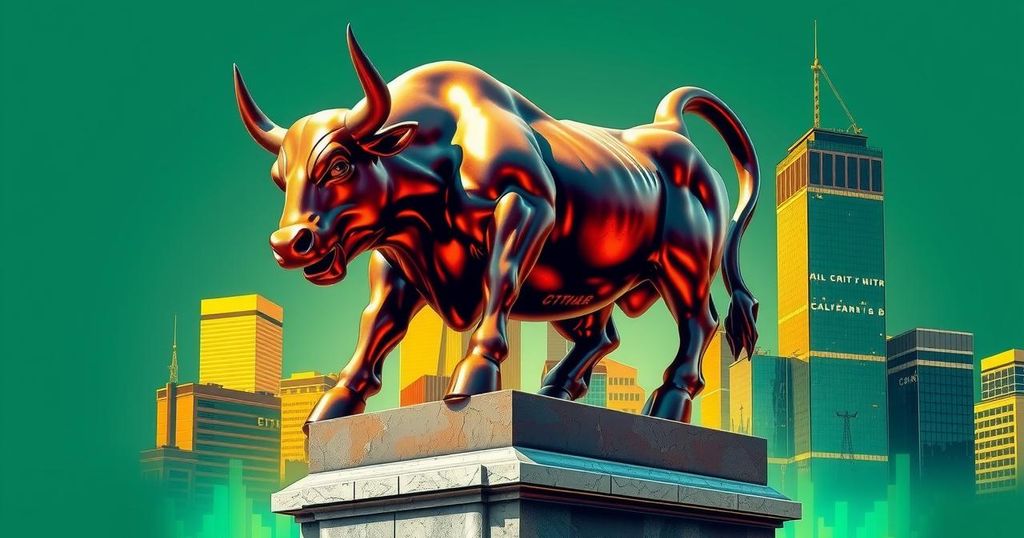Brazil’s Ibovespa experienced a slight decline of 0.41% during a global sell-off, outperforming U.S. markets. Factors contributing to its stability included a favorable J.P. Morgan recommendation and Brazil’s insulated economy, focused on value stocks over tech. Recession fears continue to weigh globally, but analysts express optimism regarding Brazilian equities due to favorable market conditions and upcoming electoral dynamics.
Brazil’s Ibovespa index demonstrated notable resilience amidst a global market sell-off propelled by recession concerns, witnessing only a modest decline of 0.41%, closing at 124,519 points on Monday. This performance significantly outpaced the steep losses on Wall Street, particularly among technology stocks. A positive recommendation from J.P. Morgan provided critical support, mitigating potential declines in the Ibovespa.
Weak economic indicators from the United States intensified fears of a more severe economic slowdown, compounded by subdued demand from China. Ricardo Maluf, head of equity trading at Warren, remarked that these developments signify broader global recession anxieties. He highlighted that recent data from China exhibited negative inflation and persistent demand weaknesses, while U.S. employment figures released on Friday further fueled recession worries.
Sectors of the market tied to commodities faced pressure due to diminished demand from China, with Vale suffering a 1.62% loss as well as CSN and CSN Mineração declining by 1.59% and 0.91%, respectively. Petrobras shares fluctuated, closing nearly flat, with preferred shares down 0.03% and common shares declining by 0.19%.
Pedro Gonzaga, chief equity analyst at Mantaro Capital, credited the Ibovespa’s performance to J.P. Morgan’s upgraded recommendation on Brazilian equities. This shift upgraded Brazil from neutral to overweight while downgrading Mexican stocks, which reflects J.P. Morgan’s confidence in the Brazilian market’s potential.
According to a report by J.P. Morgan’s Latin America equity strategy team, factors such as appealing valuations, a conclusion to monetary tightening in Brazil, and the dynamics surrounding the 2026 elections contribute to this shift. Strategists noted that favorable global conditions might enhance Brazilian asset attractiveness as long as U.S. recession risks are mitigated.
Gonzaga emphasized that Ibovespa’s stability is fortified by Brazil’s relatively insulated economy, which is less influenced by international trade disputes. The Brazilian stock market’s limited exposure to vulnerable technology stocks, which faced heavy losses abroad, also contributed to its resilience.
Maluf underscored the Ibovespa’s propensity towards value stocks—companies characterized by stable fundamentals and lower price-to-earnings ratios. He explained that the index traditionally favors value stocks, particularly as markets transition from growth-centric investments, predominant in tech, towards value-oriented investments.
In summary, Brazil’s Ibovespa has demonstrated resilience amid global market anxieties related to recession. The index’s modest decline was notably less severe than that of U.S. markets, aided by J.P. Morgan’s favorable outlook on Brazilian equities. Factors such as Brazil’s economic composition, market dynamics, and an emphasis on value stocks appear to bolster the Ibovespa’s stability moving forward. As conditions evolve, the performance of Brazilian assets may remain promising, pending broader global economic stability.
Original Source: valorinternational.globo.com




